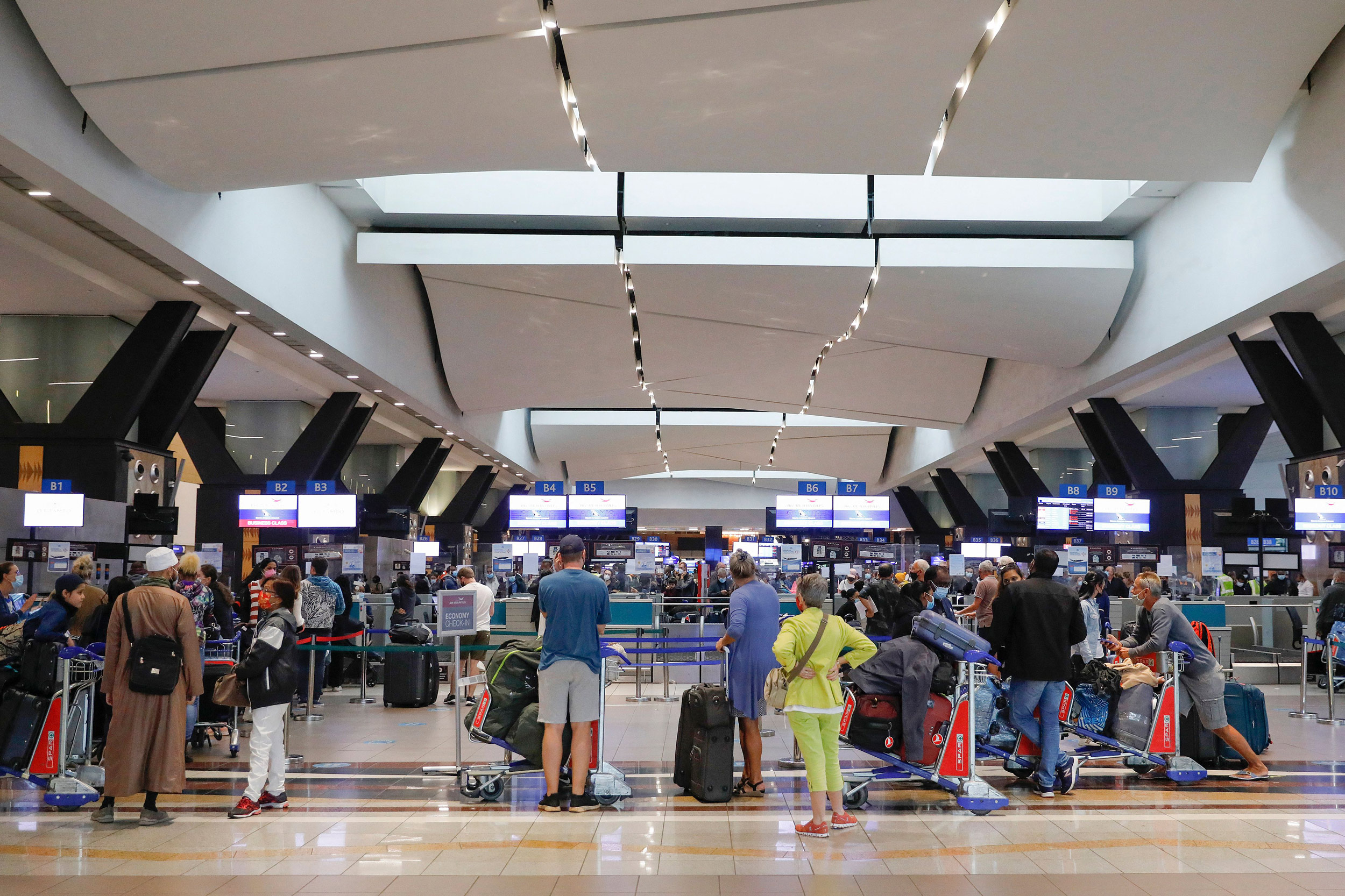Vietnam’s Ministry of Health has proposed that the national government suspend flights to and from seven southern African countries and halt entry for people from them amid concerns over the new coronavirus variant Omicron.
These nations include South Africa, Botswana, Namibia, Zimbabwe, Eswatini, Lesotho, and Mozambique, the ministry said on Sunday.
The proposed restriction is a fresh move in addition to Vietnam’s policy to close borders since March 2020 due to the COVID-19 pandemic.
Under this policy, only Vietnamese repatriates, foreign experts, diplomats, investors, skilled workers, and students are allowed to enter the Southeast Asian country, subject to strict quarantine requirements.
Recently, the country has gradually opened its borders to international visitors in a pilot scheme to revive tourism after deciding to live safely with COVID-19 instead of pursuing a zero-tolerance approach to the coronavirus.
The health ministry's proposal came after the Omicron coronavirus variant, known officially as B.1.1.529, has spread to many countries in the world.
It has yet to be found in Vietnam so far, the ministry said.
The World Health Organization (WHO) on November 25 said it had recorded this new strain from a number of southern African countries.
At least 44 countries around the world have imposed travel restrictions on African countries, including Australia, the UK, Germany, the Netherlands, Italy, Belgium, Canada, the Czech Republic, Thailand, Indonesia, Singapore, and others, according to CNN.
Israel on Saturday denied entry to all foreigners, becoming the first country in the world to completely close its borders to deal with the new variant.
Japan will also bar all new foreign arrivals over the Omicron, Prime Minister Fumio Kishida announced on Monday, just weeks after a softening of strict entry rules.
“We will ban the (new) entry of foreigners from around the world starting from November 30th,” AFP quoted Kishida as telling reporters.
According to scientists, the Omicron variant, first discovered in Botswana on November 24, has up to 32 mutations in the spike protein, becoming the most mutated strain of the novel coronavirus as yet.
This new variant is predicted to spread faster than the Delta strain and pose a higher risk of reinfection than other mutants, scientists said.
There is currently no information to suggest that symptoms associated with the Omicron are different from those from other variants, the WHO said.
It is not yet clear whether Omicron infection causes more severe disease compared to what other variants bring about, including the Delta, and it may take days to several weeks to understand the level of severity of the variant.
The Vietnamese health ministry has asked the National Institute of Hygiene and Epidemiology in Hanoi and the Pasteur Institute in Ho Chi Minh City to conduct gene sequencing of suspected new mutant infections, especially cases with an epidemiological history from southern African countries.
The ministry said it will continue to closely coordinate with the WHO and other countries to update information on the Omicron in order to timely take measures in response to the variant.
Since erupting in Vietnam in early 2020, the COVID-19 pandemic has caused 1,210,340 infections, including 958,636 recoveries and 24,882 deaths, the ministry’s data shows.
Like us on Facebook or follow us on Twitter to get the latest news about Vietnam!




















































